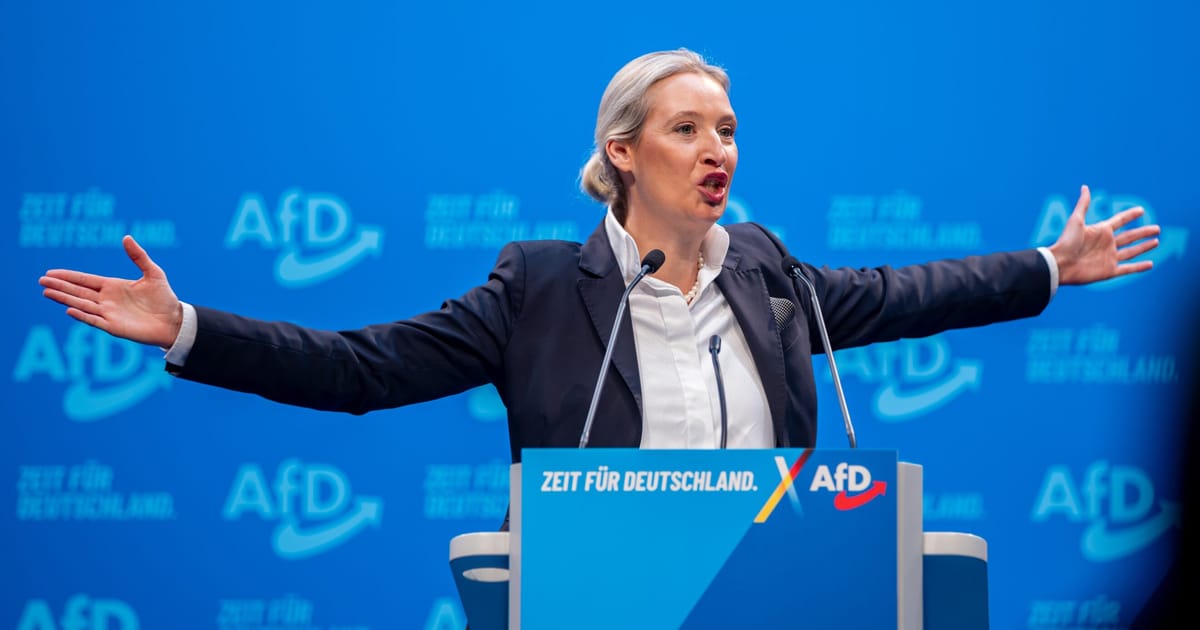
While Alice Weidel may not traditionally embody the image of a far-right radical, her transformation from a conservative economist to a prominent figure in the far-right movement mirrors the evolution of the party as it adopted more extreme stances. As evidenced by the recent electoral results, a significant portion of the German populace has undergone a similar shift in perspective.
From High Finance to Far-Right Politics
Weidel’s previous experience in international finance sets her apart from the usual profile of a nationalist political leader.
Originally hailing from Gütersloh in western Germany, Weidel pursued her studies in economics in Bayreuth. Her career began as a financial analyst at Goldman Sachs in Frankfurt, and she later held positions at Credit Suisse and Allianz, working across Germany, China, Singapore, and Hong Kong. The esteemed economist Peter Oberender, a proponent of strict free-market principles and a founder of a party that preceded the Alternative for Germany (AfD), guided her during her doctoral studies.
Weidel became a member of the AfD in 2013, shortly after the party’s formation, and was seen as a fitting candidate. Initially, it was a single-issue platform established by a group of economics academics who opposed the euro and financial aid for struggling nations during Europe’s debt crisis. During the 2013 federal elections, the AfD garnered 4.7 percent of the vote, just shy of the 5-percent threshold required for representation in parliament.
In 2015, the AfD transitioned towards an anti-immigrant stance amidst a massive influx of refugees from Syria and other regions in the Middle East. This attracted radical-right individuals seeking to leverage the party as a platform for advancing a far-right agenda, resulting in the departure of many original founders.
By early 2017, Weidel had ascended to a leadership position within the AfD. At that time, extreme-right member Björn Höcke delivered a controversial speech urging Germans to abandon their focus on the Nazi past. He called for what he termed a “180-degree turnaround in policy of remembrance,” expressing disdain for the Holocaust memorial in Berlin, stating, “We Germans, our people, are the only nation in the world that has erected a monument of shame in the heart of our capital.”









